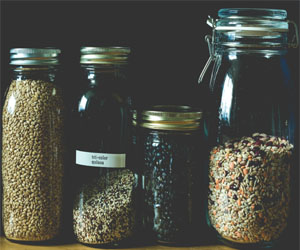


A Journey To Inner Strength

Resilience is a quality that empowers individuals to bounce back from adversity and face life's challenges with fortitude. One effective and often overlooked way to build resilience is through self-reflection. By looking inward, individuals can develop a deeper understanding of themselves, their experiences, and their responses to adversity. This article delves into the concept of building resilience through self-reflection and the practical steps for cultivating this essential skill.
The Power Of Self-Reflection In Resilience
Self-reflection is the process of examining one's thoughts, emotions, and behaviors. It involves introspection and self-awareness. When applied to building resilience, self-reflection offers several valuable benefits:
Emotional Regulation: Self-reflection allows individuals to recognize their emotional responses to challenging situations. This awareness is the first step in regulating and managing those emotions effectively.
Self-Awareness: Self-reflection helps individuals gain a deeper understanding of their strengths, weaknesses, and triggers. This self-awareness can be pivotal in developing a resilient mindset.
Learning From Experiences: Reflecting on past experiences, especially adversity, provides an opportunity for growth and learning. It allows individuals to extract valuable lessons from setbacks and difficulties.
Improved Problem-Solving: Through self-reflection, individuals can evaluate their problem-solving approaches and adapt them to better tackle future challenges.
Practical Steps For Building Resilience Through Self-Reflection
Journaling: Maintain a journal to record your thoughts, emotions, and experiences. Regularly writing down your reflections on daily events can help you identify patterns in your behavior and thought processes.
Mindfulness Meditation: Engage in mindfulness meditation practices to cultivate awareness of the present moment. This can help you develop a deep understanding of your thoughts and emotions and promote emotional regulation.
Regular Self-Check-Ins: Dedicate time for self-check-ins throughout the day. Pause to ask yourself how you're feeling, what's on your mind, and how you're reacting to various situations.
Learn From Setbacks: When facing adversity, take the time to reflect on your experiences. What did you learn from the challenge? How did you cope, and what could be improved in your response?
Seek Feedback: Ask for feedback from trusted friends, family, or mentors. They can provide valuable insights into your behaviors and reactions, offering a different perspective on your resilience journey.
Practice Self-Compassion: Self-reflection should be rooted in self-compassion. Instead of self-criticism, approach your reflections with kindness and understanding.
The Benefits Of Building Resilience Through Self-Reflection
Emotional Regulation: Self-reflection fosters emotional intelligence, enabling you to better manage your emotional responses to adversity.
Enhanced Self-Awareness: By gaining deeper insights into your thoughts and behaviors, you can make more informed choices and take proactive steps to build resilience.
Greater Adaptability: Resilience is closely linked to adaptability. As you become more self-aware, you'll be better equipped to adapt to change and navigate unexpected challenges.
Improved Problem-Solving Skills: Self-reflection enhances your ability to analyze and solve problems effectively, promoting resilience in the face of adversity.
Enhanced Coping Mechanisms: You'll develop healthier coping mechanisms and strategies for managing stress and difficult situations.
Building resilience through self-reflection is a powerful journey towards personal growth and inner strength. By taking the time to understand your emotions, behaviors, and responses, you can develop emotional intelligence, adaptability, and problem-solving skills. This, in turn, equips you to navigate life's challenges with greater resilience and thrive in the face of adversity.
Nurturing Mind And Emotions
 Herbal Remedies For Mental Health
Herbal Remedies For Mental Health
Several herbs have gained popularity for their potential to support mental health. Here are a few notable examples:
St. John's Wort (Hypericum Perforatum): St. John's Wort is renowned for its antidepressant properties and is commonly used to alleviate symptoms of mild to moderate depression.
Lavender (Lavandula Angustifolia): Lavender's soothing aroma is celebrated for its calming effects, reducing anxiety and improving sleep quality.
Ashwagandha (Withania Somnifera): An adaptogenic herb, Ashwagandha can help the body adapt to stress, improve resilience, and promote emotional balance.
Passionflower (Passiflora Incarnata): Passionflower is used to reduce anxiety and insomnia, promoting relaxation and emotional well-being.
Nourishing Your Body And Mind
 Avocado: Creamy and rich in monounsaturated fats, avocados are not only a delightful addition to your meals but also an excellent source of stress-fighting nutrients. They contain B vitamins and potassium, which help lower blood pressure and reduce stress.
Avocado: Creamy and rich in monounsaturated fats, avocados are not only a delightful addition to your meals but also an excellent source of stress-fighting nutrients. They contain B vitamins and potassium, which help lower blood pressure and reduce stress.
Berries: Blueberries, strawberries, and other berries are chock-full of antioxidants that combat oxidative stress. These antioxidants can help protect your body's cells from the damage caused by chronic stress.
Dark Chocolate: Dark chocolate in moderation can be a comforting treat and is known to trigger the release of endorphins, the body's natural stress relievers. It also contains flavonoids, which have been linked to lower stress levels.
Fatty Fish: Salmon, mackerel, and trout are high in omega-3 fatty acids, which have been shown to reduce stress and anxiety. These healthy fats are essential for brain health and mood regulation.
The Remarkable Power Of Thankfulness
 Reducing Stress And Anxiety: One of the most significant benefits of gratitude is its stress-reduction effects. When we focus on the positive aspects of our lives, we activate the brain's reward system, releasing "feel-good" neurotransmitters like dopamine and serotonin. These chemicals counteract the stress hormones in our bodies, leading to increased feelings of relaxation and overall well-being.
Reducing Stress And Anxiety: One of the most significant benefits of gratitude is its stress-reduction effects. When we focus on the positive aspects of our lives, we activate the brain's reward system, releasing "feel-good" neurotransmitters like dopamine and serotonin. These chemicals counteract the stress hormones in our bodies, leading to increased feelings of relaxation and overall well-being.
Promoting Positive Emotions: Gratitude cultivates positive emotions such as joy, contentment, and happiness. Regularly practicing gratitude allows us to dwell in a state of positivity, which, in turn, has a powerful impact on our overall mood and emotional health.
Enhancing Physical Health: Gratitude doesn't only benefit mental well-being; it also has a positive impact on our physical health. Studies have shown that grateful individuals tend to engage in healthier lifestyle choices, experience better sleep, and even have improved immune system function.
Fostering Resilience: Gratitude is a tool for developing resilience and the ability to bounce back from adversity. When we can find reasons to be thankful, even in challenging situations, it strengthens our emotional fortitude and helps us face life's difficulties with greater determination.
Strengthening Relationships: Expressing gratitude toward friends, family, and colleagues is an essential aspect of nurturing relationships. It not only fosters deeper connections but also builds a sense of trust and mutual appreciation, which are critical for overall well-being.
Increasing Life Satisfaction: Gratitude promotes life satisfaction by making us more aware of the positive aspects of our lives. It helps shift our focus from what we lack to what we have, instilling a greater sense of fulfillment.
A Journey To Better Health And Taste
 2. Fresh Fruits And Vegetables: At the heart of any diet based on wholesome ingredients are fresh fruits and vegetables. These colorful and nutrient-dense foods provide a wide array of vitamins and minerals, along with dietary fiber. Incorporating a variety of fruits and vegetables into your meals ensures you get a broad spectrum of nutrients.
2. Fresh Fruits And Vegetables: At the heart of any diet based on wholesome ingredients are fresh fruits and vegetables. These colorful and nutrient-dense foods provide a wide array of vitamins and minerals, along with dietary fiber. Incorporating a variety of fruits and vegetables into your meals ensures you get a broad spectrum of nutrients.
3. Whole Grains: Whole grains, such as brown rice, quinoa, oats, and whole wheat, are unrefined grains that retain all parts of the grain kernel. They are a rich source of fiber and provide a steady release of energy. Whole grains are a staple in a wholesome diet.
4. Lean Proteins: Lean proteins like chicken, turkey, fish, tofu, legumes, and low-fat dairy products are essential for muscle health and overall well-being. They are a primary source of amino acids necessary for the body's growth and repair.
5. Healthy Fats: Wholesome ingredients include healthy fats like avocados, nuts, seeds, and olive oil. These fats provide essential fatty acids that support various bodily functions, from brain health to skin and hair.
6. Natural Sweeteners: When sweetness is desired, wholesome ingredients offer natural sweeteners such as honey, maple syrup, and dates. They provide a sweet taste without the refined sugars often found in processed foods.
7. Minimal Processing: Wholesome ingredients are as close to their natural state as possible. They have undergone minimal processing and do not contain artificial additives or preservatives. This ensures that the nutrients and flavors are retained.
8. Flavorful Herbs And Spices: Herbs and spices, like basil, oregano, cinnamon, and turmeric, are key components of wholesome ingredients. They not only enhance the taste of your dishes but also offer various health benefits, such as anti-inflammatory properties.






 One of the primary benefits of aromatherapy is its ability to improve physical well-being. Essential oils can address various physical issues, from reducing pain and inflammation to promoting better sleep. Oils like lavender and chamomile have proven to be effective in relaxation, which can alleviate physical tension. Eucalyptus and tea tree oils are well-known for their potential to support respiratory health. By integrating these oils into massages, baths, or diffusers, you can enhance your overall physical health in a holistic manner.
One of the primary benefits of aromatherapy is its ability to improve physical well-being. Essential oils can address various physical issues, from reducing pain and inflammation to promoting better sleep. Oils like lavender and chamomile have proven to be effective in relaxation, which can alleviate physical tension. Eucalyptus and tea tree oils are well-known for their potential to support respiratory health. By integrating these oils into massages, baths, or diffusers, you can enhance your overall physical health in a holistic manner.
Emotional Well-Being
Aromatherapy is renowned for its impact on emotional well-being. Scents can have a profound influence on our emotions and mood. Essential oils like citrus, rose, and ylang-ylang can uplift the spirits, reduce anxiety, and foster emotional balance. By inhaling these fragrances or using them in aromatic baths, individuals can experience a positive shift in their emotional state. Aromatherapy empowers us to manage and improve our emotional health holistically.
Mental Well-Being
A clear and focused mind is essential for holistic well-being. Aromatherapy can aid in enhancing mental clarity, reducing stress, and improving concentration. Oils like peppermint, rosemary, and lemon are well-suited to boost cognitive function. Diffusing these oils during work or study sessions can create a mental environment that supports well-being.
The Holistic Approach
Holistic well-being involves addressing all facets of our lives: physical, emotional, and mental.
Your Journey To Well-Being
 Emotional Well-Being: It enhances emotional stability and fosters a positive outlook on life.
Emotional Well-Being: It enhances emotional stability and fosters a positive outlook on life.
Improved Relationships: People with inner peace tend to have healthier relationships and better communication skills.
Mental Clarity: A peaceful mind allows for better decision-making and problem-solving.
Enhanced Physical Health: Inner peace can reduce the risk of physical ailments caused by stress and emotional turmoil.
The Journey To Inner Peace
Finding inner peace and balance is an ongoing journey, and it involves the following steps:
Self-Reflection: Take time to explore your inner self, your thoughts, and emotions. Understand your triggers and patterns.
Mindfulness: Practice mindfulness techniques, such as meditation and deep breathing exercises. These help you stay present in the moment and reduce mental clutter.
Letting Go: Learn to let go of things you cannot control and detach from negative emotions that do not serve you.
Gratitude: Develop a habit of expressing gratitude daily, focusing on the positive aspects of your life.
Acceptance: Embrace self-acceptance and self-compassion, recognizing that you are human and that it's okay to have imperfections.
Simplify: Declutter your life, both physically and mentally, to create space for peace and balance.
Benefits Of Inner Peace
Cultivating inner peace and balance yields numerous benefits:
Stress Reduction: Inner peace is a powerful tool for reducing stress and anxiety.
Emotional Resilience: It enhances your ability to cope with life's challenges and adversity.
Better Relationships: You can build healthier relationships based on empathy and communication.
Clarity And Focus: Inner peace provides mental clarity and enhances your ability to focus.
Enhanced Well-Being: It contributes to overall well-being and life satisfaction.